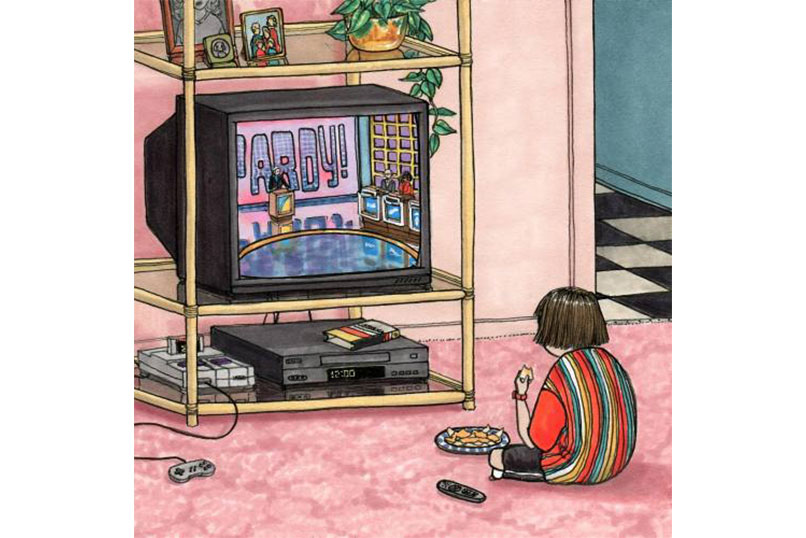“working nonstop doesn’t mean you’re getting anywhere. sometimes, being still is the smartest move.” –anonomous (anti-hustle culture)
For a long time, we believed being busy was the same as being successful.
Wake up early. Stay up late. Always do more.
But lately, more people are starting to question that.
On TikTok, you’ll see videos with hashtags like #Quittok or #QuietQuitting—people sharing how they’re stepping away from stressful jobs or working less on purpose.
They’re not lazy. They’re just tired of living to work.
In 2023, California even talked about changing the workweek to just four days.
It didn’t happen, but the idea made people think:
Do we really need to work ourselves to the point of exhaustion?
A report from 2024 said that 42% of Gen Z workers feel burned out.
That means almost half of young people are already exhausted from trying to “keep up.”
But this shift isn’t loud.
It’s quiet.
People are starting to create new ways of working that feel better—slower, simpler, more meaningful.
It’s not about doing less.
It’s about doing what matters most.
And that’s what I do with everything I make—
I don’t shout. I show.
I don’t follow the rules. I build my own rhythm.
Every product, every post, every drop is a way of saying:
you don’t have to burn out to build something real.
redefining “anti-hustle”
“anti-hustle doesn’t mean you’re lazy. it means you’re choosing a better way.” –anonomous (anti-hustle culture)
When people hear “anti-hustle,” they sometimes think it means doing nothing.
But that’s not true.
It means not rushing just to look busy.
It means not working every second just to feel important.
It’s about choosing a rhythm that actually works for you.
Some people are finding that doing less—but doing it with focus—actually gets better results.
There’s a writer who only works a few hours a day and makes more now than when she worked full-time.
She stopped chasing hustle and started designing her days with intention.
Anti-hustle culture is becoming more popular:
- Take breaks without guilt
- Protect your energy
- Work on what matters, not everything
That’s why I created the ritual reset kit.
It’s not a planner full of rules.
It’s a simple system to help you slow down, stay focused, and show up with intention.
It gives you structure—but leaves space to breathe.
Because real creativity doesn’t happen when you’re burned out.
It happens when you’re clear, present, and in control of your time.
Anti-hustle isn’t about doing nothing.
It’s about doing the right things, your way.
america’s hustle hangover
“working harder doesn’t always mean living better.” –anonomous (anti-hustle culture)
In the past, people worked long hours just to survive.
Over time, that turned into a badge of honor.
Working non-stop became something to brag about.
But today, that mindset is starting to break down.
Jobs aren’t as secure as they used to be.
Many people have side hustles just to make ends meet.
And now, with things like AI and constant notifications, people are working more than ever—but feeling less happy.
In 2023, a tech worker from a big company posted on LinkedIn about being completely burned out.
Her story went viral.
Thousands of people said they felt the same—tired, overwhelmed, and unsure what all the hustle was really for.
That’s what I call a “hustle hangover.”
We pushed ourselves for so long, now we’re finally feeling the crash.
And here’s the truth:
the system isn’t built for your peace.
It’s built to keep you producing—scrolling, posting, buying, working.
But you can choose something different.
You can build a slower, smarter rhythm that supports your energy instead of draining it.
You can design your day instead of letting your phone or calendar run it.
That’s what anti-hustle culture is really about—taking back control.
how creators are resetting
“you don’t need more hours. you need a rhythm that works.” –anonomous (anti-hustle culture)
More and more creatives are stepping back and asking better questions:
What am I really building?
Is this routine helping me, or just keeping me busy?
Instead of pushing through exhaustion, they’re protecting their mornings.
Instead of saying yes to every project, they’re learning to pause.
They’re not doing less because they’re lazy—they’re doing less so they can go deeper.
Some only work 4 hours a day.
Others take full days offline.
And guess what?
Their work is better because their mind isn’t burnt out.
This isn’t about escaping effort.
It’s about making space for meaningful effort.
The old way says “do more to feel valuable.”
The new way asks, “what if your value isn’t measured in tasks at all?”
You’re allowed to move different.
You’re allowed to design a life that actually fits.
That’s the quiet shift happening now.
Creators aren’t running from the hustle.
They’re outgrowing it.
slow is the new flex
“anti-hustle isn’t anti-work. it’s pro-life.” –anonomous (anti-hustle culture)
This new way of working isn’t loud.
It doesn’t brag.
It doesn’t post screenshots of calendars filled to the edge.
It just works—quietly, intentionally, and on your terms.
Choosing slow doesn’t mean you’re behind.
It means you’re present.
And presence is rare now.
The future of creative work won’t be about who’s busiest.
It’ll be about who can stay clear.
Who can stay aligned.
Who can build without burning out.
Because real impact doesn’t come from overworking.
It comes from designing your life like it matters.
So take the break.
Say no.
Log off early.
Move how you move.
Anti-hustle culture isn’t an excuse to coast—
it’s permission to create on your own frequency.
don’t measure your day by tasks. measure it by resonance. –anonomous (anti-hustle culture)
the ritual reset kit
a calm system for creators who are done with burnout and tired of noise. anti-hustle culture moves with intention—not urgency.
- ✓ daily flow system for creative focus
- ✓ includes Notion template + printable PDF
- ✓ flexible, quiet, and easy to use

